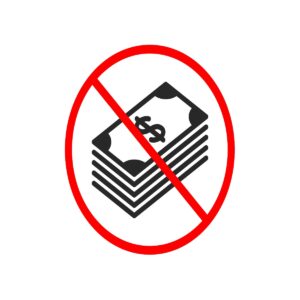
EXCEEDING THE LIMITS OF THE LAW
Under Kansas law, there are limits on the amount that can be garnished from a person’s wages. K.S.A. § 60-2310(b) sets out these limits, which are based on the debtor’s disposable earnings (i.e. the amount left after deductions for taxes, social security, and other mandatory withholdings).
Under this statute, for a general debt, a creditor can only garnish up to 25% of the debtor’s disposable earnings, or the amount by which the debtor’s disposable earnings exceed 30 times the federal minimum wage, whichever is less. If the garnishment exceeds this amount, it may be invalid. It should be noted, cases involving a domestic support obligation, bankruptcy orders, and tax debts may allow a creditor to garnish more than 25% of disposable earnings.
Overall, it is important for creditors to be aware of the limits on wage garnishment in Kansas, and for debtors to be aware of their rights. If a garnishment exceeds the amount allowed by law, the debtor may be able to challenge it in court.
K.S.A. § 60-2310 Summary:
There is no substitute for reading the statutes that govern a topic, but there is also value in reviewing a summary of the statute. A summary of K.S.A. § 60-2310 can be found below:
– The statute defines key terms such as “earnings,” “disposable earnings,” and “wage garnishment.”
– It outlines restrictions on wage garnishment, including that the maximum amount that can be garnished is the lesser of 25% of disposable earnings, the amount exceeding 30 times the federal minimum hourly wage, or the amount of the plaintiff’s claim.
– It also specifies that no one creditor can issue more than one garnishment against the same debtor in a 30-day period.
– Exceptions to these restrictions include court orders for support, bankruptcy orders, and tax debts.
– The statute also addresses situations in which a debtor is unable to work due to illness, and provides that garnishment cannot be invoked against them until two months after recovery.
– It prohibits the use of wage garnishment for assigned accounts, with a few exceptions such as for child support or restitution.
– Finally, the document sets out specific limits on garnishment for child support, which differ depending on whether the debtor is supporting another spouse or child.


